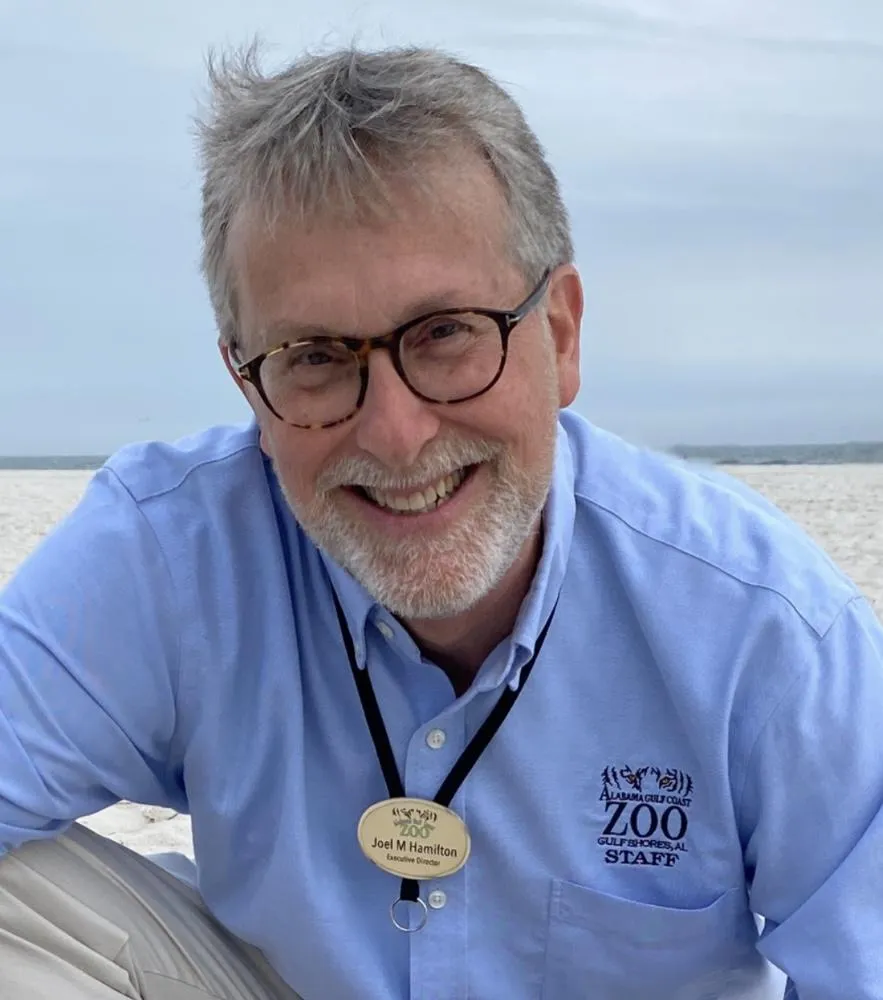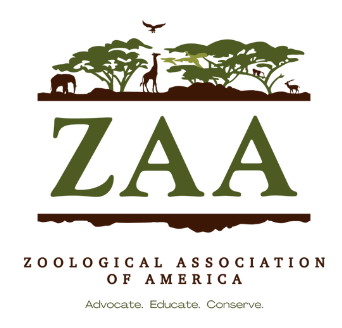
Announcing Our New AMP/Conservation Committee Chair: Joel Hamilton
Announcing Our New AMP/Conservation Committee Chair: Joel M. Hamilton
We are excited to introduce Joel M. Hamilton as the new Chair of the AMP/Conservation Committee! A dedicated member of the committee for over 5 years, Joel brings more than 40 years of experience as a zoo professional and an unwavering passion for wildlife conservation and environmental education.
Throughout his career, he has worked for five different zoos, two of which he was the Director. He received his master's degree in landscape architecture from the University of Texas at Arlington and has also worked for architectural firms as a licensed landscape architect designing a variety of animal facilities.
Joel’s contributions to field conservation are equally impressive. He played a key role in the Condor Project by delivering the Dallas Zoo’s first Andean condor egg to the Los Angeles Zoo. His adventures have taken him deep into the Amazon Forest of Peru, where he lived in a tent for a month collecting data for an understory bird population study. He has also traveled to Cuba to assist in field population censuses for the Cuban Amazon parrot and Cuban crane.
When he’s not making strides in conservation, Joel enjoys spending time with his wife and two children. An avid traveler and wildlife observer, he finds joy in exploring the natural world. And as a passionate fly fisherman, his fly rod is always within arm’s reach!
A Fond Farewell to Ken Kaemmerer
Ken Kaemmerer, the current Chair of the AMP/Conservation Committee, will be stepping down at the end of December after serving in this role for almost 8 years years. Under Ken’s leadership, the committee has achieved remarkable milestones, including:
8 new Animal Management Plans (AMPs) developed and implemented.
Development of the process for AMP applications, the definition of the roles of Studbook Keeper and Species Manager as well as the written AMP policy plus the criteria for approving applications for new AMPs.
The advent of the AMP Studbook and Species Manager Workshop at Midyear meetings to educate members on the process of developing an AMP studbook and the leadership of the program.
The onset of scientific and professional AMP Masterplans with the assistance of a consulting population biologist to document and analyze the AMP population's genetics and demographics in order to produce recommendations for breeding to augment the AMP populations.
The development of Species Profiles for each AMP species, a one page resource to market to members why the species should be exhibited in their collections, along with quick facts on conservation status, husbandry, reproduction, housing plus contacts for knowledgeable experts.
Creation of the Conservation Factsheet, a key resource now available on our website.
Creation of the ZAA Conservation Initiatives Grants, an annual program that awards proposals for conservation research in situ and ex situ.
Management through committee members of the ZAA Global Conservation Fund, a dedicated fund for annual awards to worthy Non-governmental Organizations performing species and ecosystem conservation and education.
Promotion of AMP and Conservation sessions at the annual conferences and scheduled webinars throughout the year.
Ken’s contributions have left a lasting legacy, and we are grateful for his dedication to advancing conservation efforts.
Looking Ahead with Joel Hamilton
As the incoming Chair, Joel is excited to build on the committee’s successes and has outlined several key goals, including:
Advancing Animal Management Programs (AMPs)
Joel emphasizes the importance of continuing to develop AMPs to secure a future for the many species in our collections. Science-based breeding programs are critical for ensuring genetic diversity, preventing homogenization within our collections, and facilitating the international movement of animals. Success in these areas begins with well-organized and strategically planned breeding program. This aspect of the committee’s work is particularly vital, as it directly supports the animals in human care.
Strengthening Conservation Programs
Equally significant are the committee’s efforts to support conservation initiatives that fund and empower projects protecting species in their native habitats. Human-wildlife conflict has emerged as a leading threat to animals in the wild, whether in Asia, Africa, or even our own backyards. Human activities continue to shape ecosystems in profound ways, making it essential to understand these impacts. Conservation programs that engage and collaborate with local communities are key to the long-term protection of species worldwide.
ZAA’s grants have been instrumental in funding NGOs and researchers who study human-animal conflicts and develop innovative solutions to mitigate them. Joel’s vision as Chair includes expanding ZAA’s conservation funding, enabling more impactful programs and partnerships.
A Collaborative Transition
Ken will work closely with Joel during the transition to ensure a smooth handoff of responsibilities.
Please join us in thanking Ken for his years as chair and welcoming Joel M. Hamilton as the new Chair of the AMP/Conservation Committee!
Disclaimer: The events and workshops listed on this page are provided for informational purposes only. Inclusion does not constitute endorsement or imply affiliation by the Zoological Association of America (ZAA).


